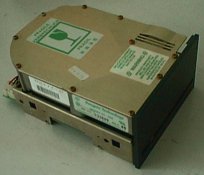Price Comparison of Hard Disk Drives!

Mark Metzler, longtime friend and former member of Heath Kline’s Priority One team sent this interesting comparison of how far we have come in the world of disk drive capacity. This analysis really breaks the Moore’s Law code. Mark said: I was in Wal-Mart last night (glad it was Mark in Wal-Mart as you will never see me in one!), and I swung by the Electronics area. I was curious as to how much a replacement drive would cost me for my PC at home, which has a 17 Gb drive in it. They had an 80 Gb drive sitting on the shelf next to the surge suppressors for $70. Never mind that it comes with the software to copy everything to the new drive. So I stood there trying to do the math on what it would cost to equate that volume of storage with the first Seagate 5Mb ST506 drives selling at $1995.00 a pop! My head started hurting, so I rounded the ST506 to $2000.
It would take 16,000 ST506’s to reach the memory of the 80 Gb drive in Wal-Mart (again sitting on the shelf, not behind a locked cabinet).
At $2000.00 a pop, it would cost me $32,000,000.00.
Now that would have been a nice sale, but would have been stolen by Jim Scharffe or Mike Daniel. Here is another perspective:
If stacked on top of one another, they would be as tall as a 667-story building.
If from sea level, they would stack high enough to top the tallest building in Downtown Denver.
If sold with a cabinet and power supply, Josef Rabinowitz would be retired.
Mark also said he found his son’s old 1988 Guinness Book of World Records that listed the Cray 2 as the fastest computer in existence. Many a water cooler conversations were had regarding the wonder of that machine and the speed of computers. The speed that it stated was 150 Megaflops per second and was, at that time, fodder for only the best Brainiacs around!
I understand today’s PC’s, they run from 600-900 Megaflops per second and are being operated by nearly every Soccer Mom in America.
A Megaflop is a million floating-point operations per second. Kind of a crude benchmark for processing speed as floating-point operations take more horsepower to calculate as opposed to straight binary operations. Nice fodder……


0 Comments:
Post a Comment
<< Home